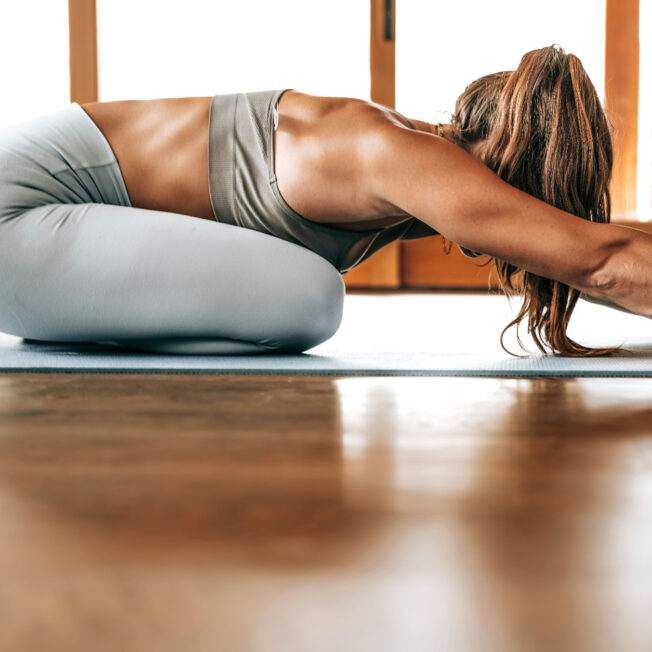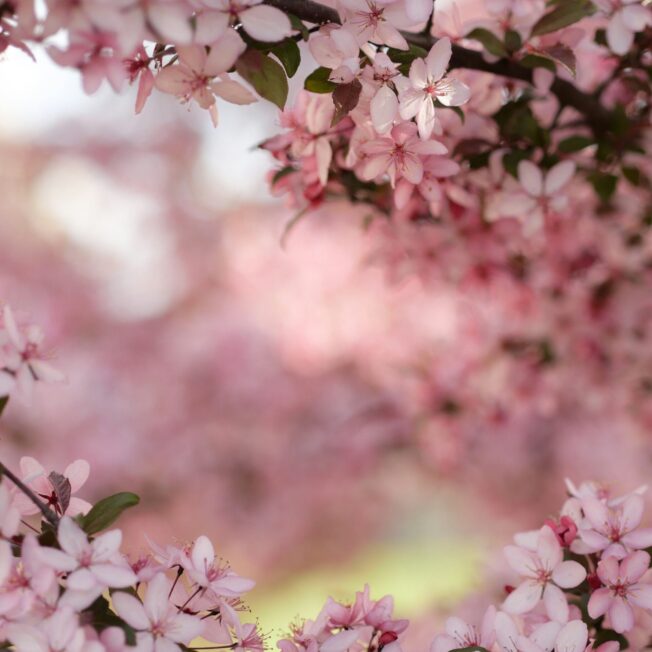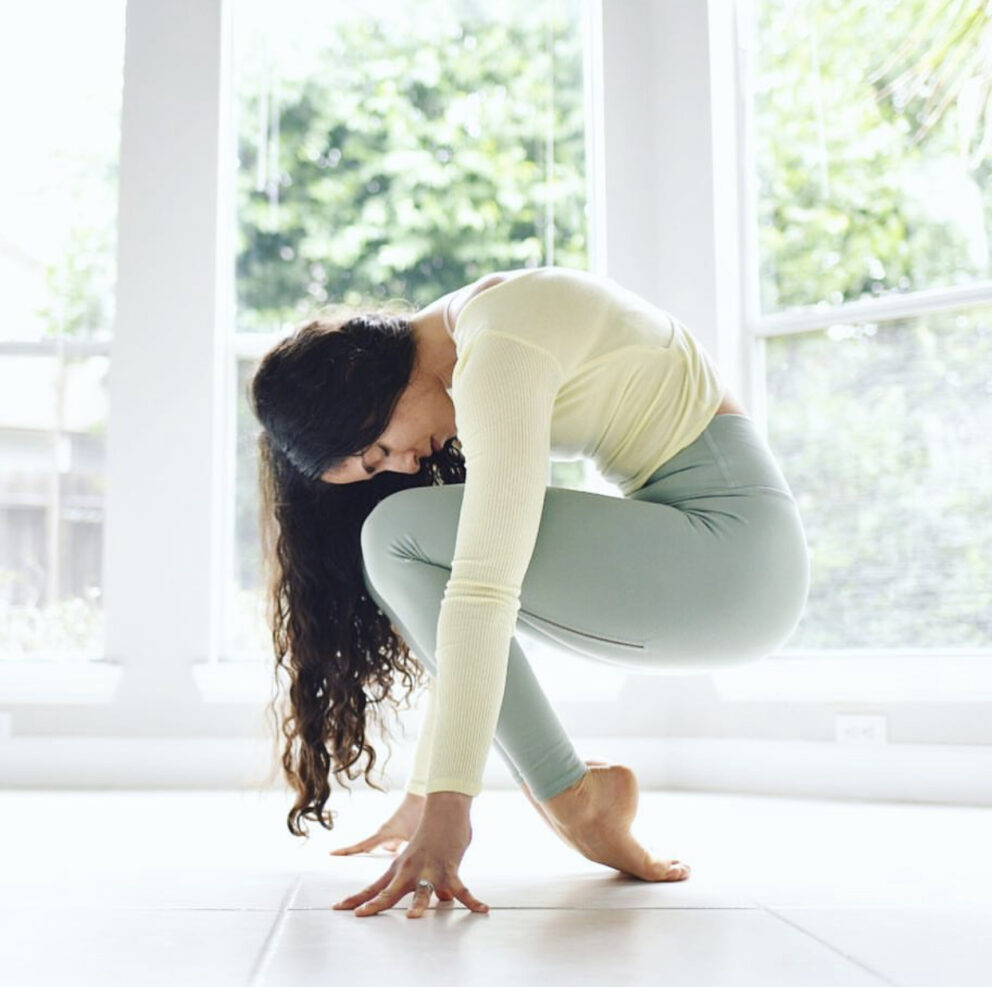As we collectively face a global health crisis, we are all experiencing bouts of worry and fear. It helps to know that we are all in this together, but this knowledge is not enough to buffer us from the stressful reality of the pandemic.
With reports that 3.9 billion people — nearly half the world’s population — and a reported three out of four individuals in the United States, are being asked or ordered to stay home, feelings of uncertainty and helplessness are at an all-time high. Hence, prioritizing your at-home self-care practices has never been more important.
As the limits of our healthcare system are tested, those of us who have not fallen ill are dealing with mounting stress levels. Disruptions to our regular routines — working from home and experiencing social isolation, some of us for the first time — leave us ill-equipped to cope with the grim news updates we receive daily.
“You would have to be living under a rock to not be feeling some stress lately, with COVID-19 emerging as a world-wide pandemic,” says life coach Julie Haber, Inspiration and Wellness Specialist at Lake Austin Spa Resort.
“These times call for a boost in attention to stress management tools so we can live our best life, knowing that this is all temporary and will pass soon.”
After all, stress isn’t just unpleasant to deal with emotionally. It impacts our health, suppresses our immune systems, taxes our adrenal glands, and emotionally depletes us. Rather than ignoring waves of anxiety, you can learn to cope effectively while sheltering in place. As you do, the growing ability to self-soothe in the wake of intense emotional experiences will cultivate a greater sense of self-mastery. This will empower you long into the future — and long after the crisis has passed.
At times like these, we could each use a personal life coach to help us cope with the uncertainty of the future. Luckily for us, Haber shares seven tips for coping with COVID-related stress below.
1. Create meaningful, restorative rituals:
While your schedule is uprooted, intentionally creating new rituals can help you adapt to the ‘new normal.’ Haber recommends creating one with tea. “This can be done alone, or you can have a virtual teatime online with a group of friends,” she explains. “There are so many wonderful blends that you can make. Try making an immunity blend, a relaxation blend, or a nighttime blend.” We at nécessité love brewing ourselves a cup of stomach-settling, immune-enhancing ginger tea.
2. Practice grounding exercises:
Grounding practices work by activating one (or more) of the five senses — visual, tactile, auditory, olfactory, and gustatory — enabling you to redirect your attention away from anxious, ruminative thoughts, and onto the bodily sensations instead.
“Aromatherapy is an excellent way to relax and make your home feel like a sanctuary,” explains Haber. “Not only does [a diffuser] bring much-needed moisture to your space, but depending on what essential oils you use, you can create an atmosphere of healing.” Choosing essential oils with anti-viral effects (i.e. lavender, tea tree oil) or that improve respiratory function (i.e. eucalyptus) can also promote immune function simultaneously.
Consider a luxury candle by Nanor or a sustainable pick by Siblings.
3. Practice Mindfulness and/or Meditation:
It is an ideal time for practices that center you in the present moment, like yoga, meditation, and mindfulness. “Start with a simple body scan,” instructs Haber. “Remind your body to relax from head to toe, set your timer for ten minutes, and pay attention to your breath as it rises and falls. Being centered in the here and now is one of the best ways to reduce stress.”
One benefit is that there are many different practices to choose from — mantra meditations, mindfulness meditations, and even walking meditation — as well as online resources (i.e. Oprah & Deepak 21-Day Meditation Experience, Transcendental Meditation) and apps (i.e. Headspace, Calm) to guide you in your practice.
John Kabat-Zinn’s Wherever You Go, There You Are is a must-read for fans of mindfulness.
4. Visualization and Imagery Work:
“When I was sick with an autoimmune disease, I am convinced that part of how I healed was incorporating visualization and imagery work,” says Haber. “Of course, this is no substitute for medical treatment [but] visualizing your body being strong and healthy is a powerful practice.”
While a single sneeze or cough can trigger a spiral of anxious thinking, Haber encourages you to listen to and familiarize yourself with your body. “If you are feeling stressed, imagine you are in a peaceful or joyful place — like the ocean, on a trip with your favorite people, in a garden, or anywhere that is calming to your mind and spirit.”
To start, set an intention to attune yourself to your physical well-being. This allows you to recognize when you are doing well, but also to be your own self-advocate when you are not. “Each day, give a tap to your thymus (chest), which helps to stimulate the immune system. Talk to your T-Cells. Thank them for working for you and keeping you healthy and strong. If you are sick, see and imagine yourself as well,” she says.
5. Immerse yourself in water:
Hydrotherapy is one of our favorite wellness practices while sheltering-in-place. Haber adds that it has been relied upon for healing for hundreds of years for healing. “Listen to the sound of water, get a fountain, or better yet, get in a nice, warm bath with mineral salts and lavender,” she continues. “This is the best remedy to soothe a stressed or tired mood and boost the spirit!”
We enjoy twenty-plus minute soaks in reiki-infused bath salts, such as Hellen NYC Center Your Heart Bath Brew.
6. Cultivate gratitude:
Haber explains that feelings of gratitude release chemicals in the body that lead to improved mood and a greater sense of well-being. As such, it is particularly important to find ways to cultivate this feeling during particularly stressful times like these.
“Try keeping a gratitude journal. Every day, write down three things that you are grateful for,” she begins. Currently, a gratitude journal may not be enough, so she reminds us that re-frame upsetting situations can be helpful. For instance, if you were unable to get the paper towels you needed, she instructs you to think about the frozen berries that you were able to get. If your kids are getting on your last nerve, remind yourself to be grateful for the opportunity to spend this extra time together.
Reminding yourself that, “patience is a virtue,” keep in mind that gratitude takes practice — especially when we’re stressed. As such, try to be extra kind and compassionate with yourself as you cultivate a gratitude practice.
To get your gratitude journal started, check out Printfresh Blush Velvet Gratitude Journal.
7. Focus on ways to give to others:
The moments of service that emerge during crises have a way of inspiring entire communities. “During these challenging physical and economic times, one tip that always helps to reduce our own stress is to think of those less fortunate and to give where we can,” Haber begins.“A world pandemic is a great opportunity to practice gratitude for what you have, and to notice where you can give to others.”
She explains that the process of coming “up and out” of ourselves helps us to respond to those in need, and that it can help to feel like we are making meaningful contributions in the ways that we can. “Crises lead to increased opportunities to serve and give, [serving as] crucial reminders that we are all one world family.”
Taking your gratitude practice a step further and putting it into action can be an excellent way to rise above hard times.


















